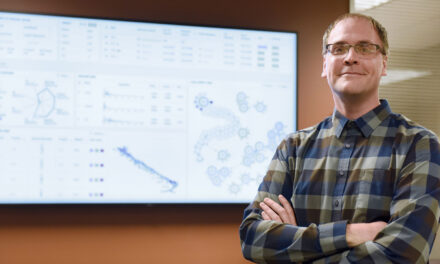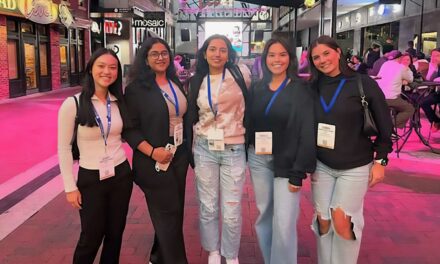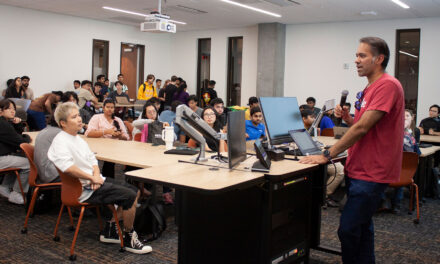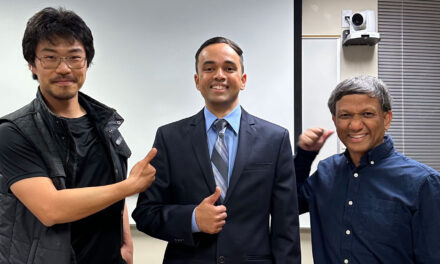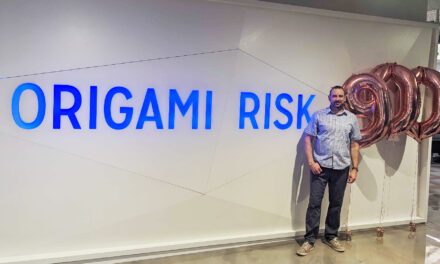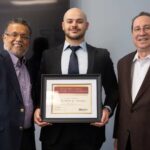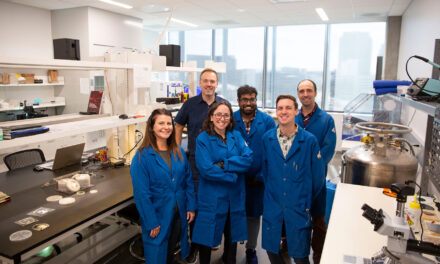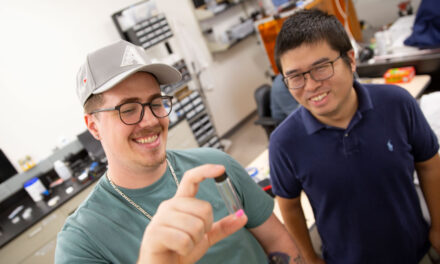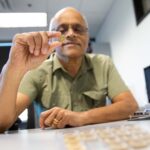
A bright idea
Mojdeh Khorsand Hedman’s NSF CAREER award research aims to improve power grid reliability and lower energy costs
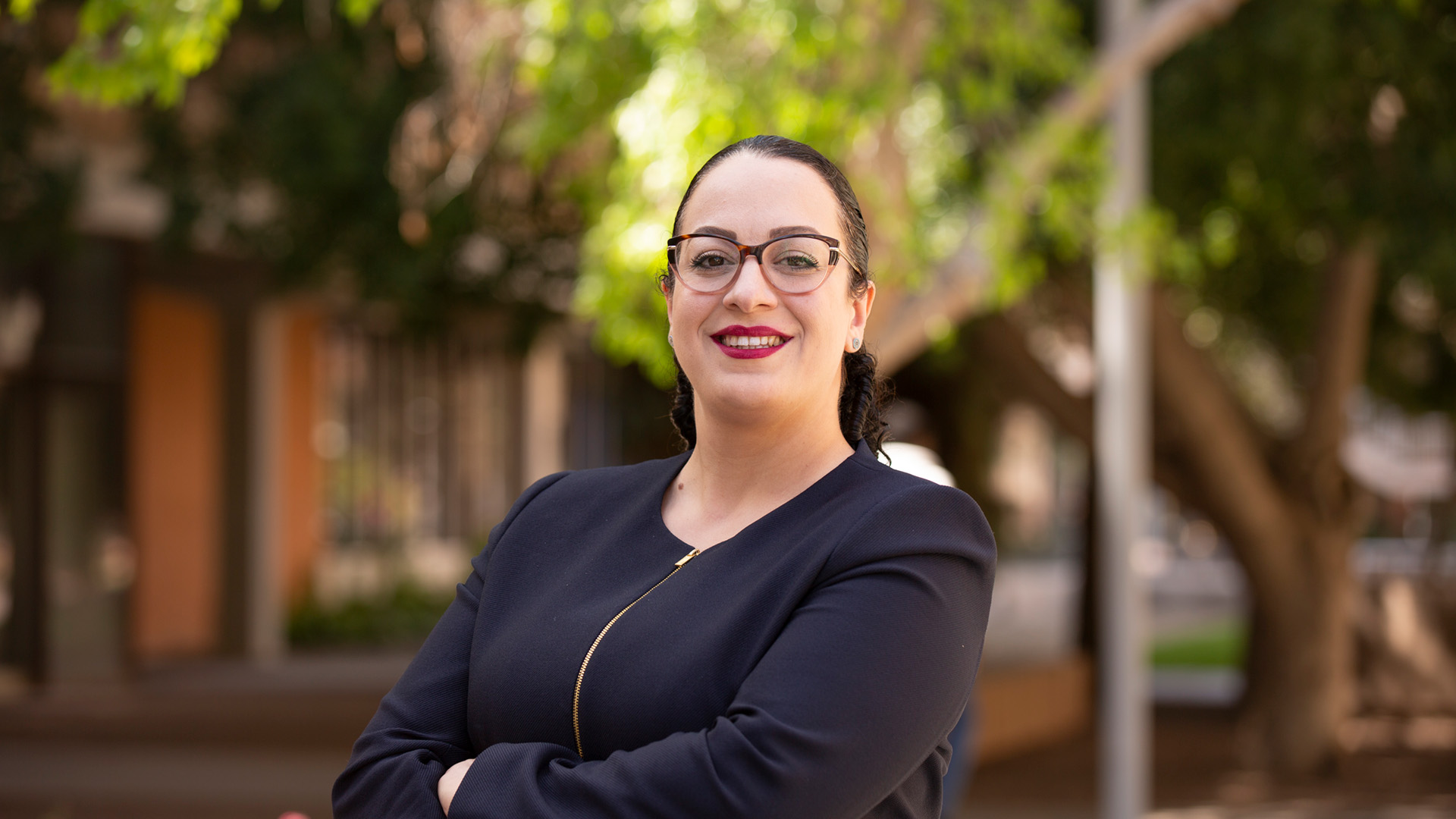
As manufacturing returns to the U.S. and data centers become more prominent, electricity demand is accelerating faster than experts expected. Renewable power generation resources are gaining popularity to meet the increasing demand while decarbonizing the electrical grid to combat climate change.
Sustainable electricity technologies, such as wind turbines and solar panels, are changing the power generation paradigm due to different behavior than traditional power plants. Traditional plants provide electricity for thousands of households from fixed locations and can provide power at will using fossil fuels, dams or nuclear reactors.
In contrast, renewable energy resources such as wind turbines and solar panels are dependent on weather conditions and can be placed in multiple locations across the power grid. Grid engineers are still determining the best course of action to integrate renewable energy generation into the mix without compromising reliability.
Mojdeh Khorsand Hedman, an assistant professor of electrical engineering in the Ira A. Fulton Schools of Engineering at Arizona State University, is looking to tackle the challenge. Khorsand Hedman, a faculty member in the School of Electrical, Computer and Energy Engineering, part of the Fulton Schools, received a $500,000 2024 National Science Foundation Faculty Early Career Development Program (CAREER) Award to explore best practices to manage renewable energy resources dispersed around the power grid, along with flexible electricity demand.
Through the project, she aims to improve electricity reliability and affordability, emphasizing the impact on low-income households.
CAREER Award recipients are those recognized as having potential to become academic role models and leaders in their fields. Khorsand Hedman has focused her career on power grid research and developed numerous technologies in the area, including an algorithm that uses data from homes’ smart meters to detect and pinpoint electricity system malfunctions and power quality issues.
Her research efforts also include an interdisciplinary focus at the intersection of energy engineering and social sciences to promote a more just and equitable energy system transition.
For her CAREER Award research, Khorsand Hedman will analyze households’ individual energy needs and use artificial intelligence algorithms to predict electricity demand. She plans to preserve customers’ privacy while collecting the energy usage data, which will explore the flexibility of consumers’ electricity usage during emergency situations.
Khorsand Hedman plans to use the predictions to inform how a power grid can best supply unused energy generated by distributed resources managed by private individuals and businesses, such as rooftop solar panels, to consumers based on demand flexibility.
“To date, the design of smart grid solutions has mainly followed a technology-centric approach, with limited consideration of diverse consumption behaviors and their flexibility,” she says. “In contrast, the innovative approaches of this project aim at advancing smart grid operations while accounting for critical behavioral factors.”
Another crucial component of the project is educating society on how distributed power generation resources can best be used to ensure reliable electricity for all power grid customers. Khorsand Hedman plans to develop learning experiences for the public to accomplish this goal.
Khorsand Hedman believes her project was chosen for a CAREER Award due to its interdisciplinary nature and novel approaches.
“My work in this topic is one of the very first to integrate consumption behavior analysis using AI with power grid operation,” she says. “Also, the educational component is strong due to being a new interdisciplinary topic at the intersection of social science, AI and electric power engineering.”
Khorsand Hedman’s project will provide opportunities for three doctoral students to assist in the research, along with students from the Fulton Undergraduate Research Initiative, or FURI, and Master’s Opportunity for Research in Engineering, or MORE, programs. Khorsand Hedman says students involved in the project will be well-equipped to be the power grid experts of tomorrow as the field transitions away from fossil fuels.
Once the research is complete, she expects utility companies to adopt the techniques and technology developed. Khorsand Hedman considers the research a culmination of years of work.
“The current project is built on six years of effort from multiple doctoral students and me,” she says. “Part of the work is based on my team’s recent U.S. patent on detailed modeling of power distribution systems. Working at the intersection of power engineering and social sciences to enhance equitable and just design and operation of power systems is my long-term career goal.”



